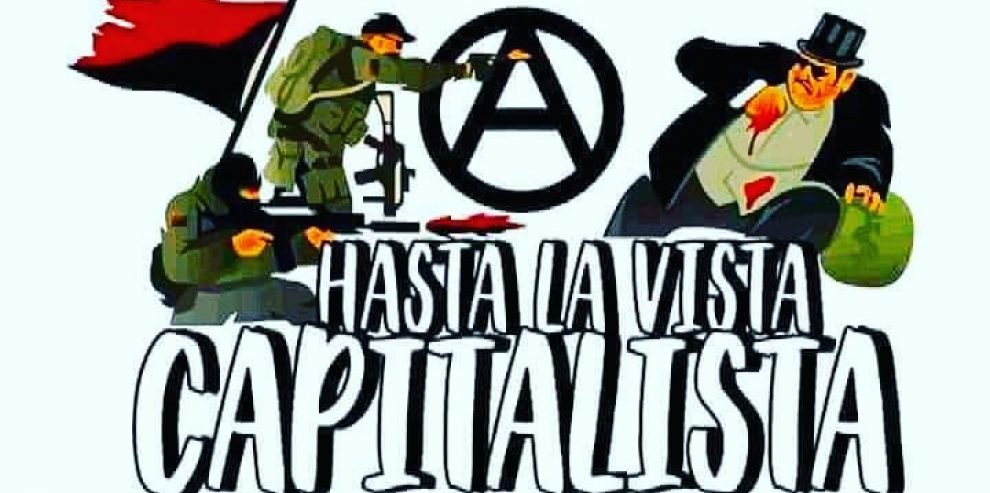This is a short overview of Chechen society from an anarchist perspective. The author does not believe historical Chechen society is a complete model for the future but believes there are lessons to be learnt from it.
The Chechens are the native inhabitants of the central North-East Caucasus.
Chechnya- the France of the Caucuses, could historically be more accurately described as anarchist warriors of the caucuses, was an egalitarian culture, as opposed to republican culture, which existed during medieval times. Under the blows of repression and oppression ,the Chechen peoples launched a revolution leading to the birth of Chechen warrior culture.With the spread of gunpowder, Chechen society rose up against their local and foreign overlords to establish an autonomous, egalitarian and free nation. One were the land was held in common and ”Nokhchallah”, the chechen code of decency and honor took precedent.
The illesh, or epic legends, tell of conflicts between the Chechens and their Kumyk and Kabardin overlords. While some argue that the chechen system of self governeance was like a western style republican democracy, because of communal wealth ownership and autonomous links, it was more of a federation. The “tukhumtaip” system was similar in many ways to what war time anarchist societies were like, such as the free territory in Ukraine or the Regional Defense council of Aragon in Spain. There was little importance of a centralized judicial branch (instead local courts held precedence), and that teip functioned like provinces, with representatives being elected by teip as well as by region.
This insurrection and revolution, making the Chechens the “French of the Caucasus”, had a strong effect on the social and political mores of the Chechens. Chechen values based around democratic federalism, freedom, ideological pluralism and deference to individuality date back to this event. The Chechens’ homeland was the only territory in the Caucasus where feudal structures never took hold. They knew neither princes nor kings, neither taxes nor the force of the state. They were free farmers working their own land, and their only duties were to their reputation and that of their family and clan. The greatest moral virtue to which it subscribed was to defend one’s family, the tombs of the dead, the country and its liberty. Riding and the use of weapons was learned in childhood. All Chechen greetings contain the word “freedom”.
Chechen culture puts a strong value on the concept of freedom. This asserts itself in a number of ways. A large majority of the nation’s national heros fought for independence (or otherwise, like the legendary Zelimkhan, robbed from the nation deemed the oppressor in order to feed Chechen children in a Robin-hood like fashion). A common greeting in the Chechen language, marsha oylla, is literally translated as “enter in freedom”. The word for freedom also encompasses notions of peace and prosperity.
Chechen society was based around an ingrained form of social individualism. The individual was the base of society, from which arose responsibilities to the family, clan up to the nation. A code of honor and ethics meant that an individual could redeem themselves after wrong doings through constructive behaviour and particularly bravery in defence of the people.
The Chechen societal structure was built through many years of war and they continuously fought a defensive war against Invaders. This external pressure meant Chechen society forged and maintained its social individualism.
Society was democratic, meaning that as far as possible it was organised on the basis of self regulation, or autonomous individualism. Disputes were often settled locally with the aid of elected elders.
At each tier – the individual, the extended family (dosal), the clan (taip), the tribe (tukkhum) and the country (mehkh) – there was a council of elders to determine social and political affairs (although reputation was the decisive factor in the election of its members, rather than age). The system was founded on the code of common law, the adat, which applied throughout the Caucasus. It required respect for older people, women and children, hospitality and social justice. It also stipulated that nature should be protected, that animals should not be hunted while grazing, and that a community decision was needed to fell a fruit-bearing tree. It was also the basis for jurisdiction, blood feuding and all social matters.
The traditional Chechen saying goes that the members of Chechen society, like its teips, are (ideally) “free and equal like wolves”.
While capitalist society decrees that we must have respect for hierarchy (based on wealth, age, gender ect) and centralisation, it is an asocial social code of ethics. Chechen society stated that respect for the individual and their freedom was paramount, but we also owed to duty to safe guard the well being of each and the freedom of all. It is the inversion of western capitalist ethics and practice.
The Chenchen code of ethics based on earned respect, and warrior culture in defence of the downtrodden or for the homeland is something we can learn from. The federalist structure of society, which allowed flexibility but strength and unity in times of war is an outline for a revolutionary Irish society in particular.
